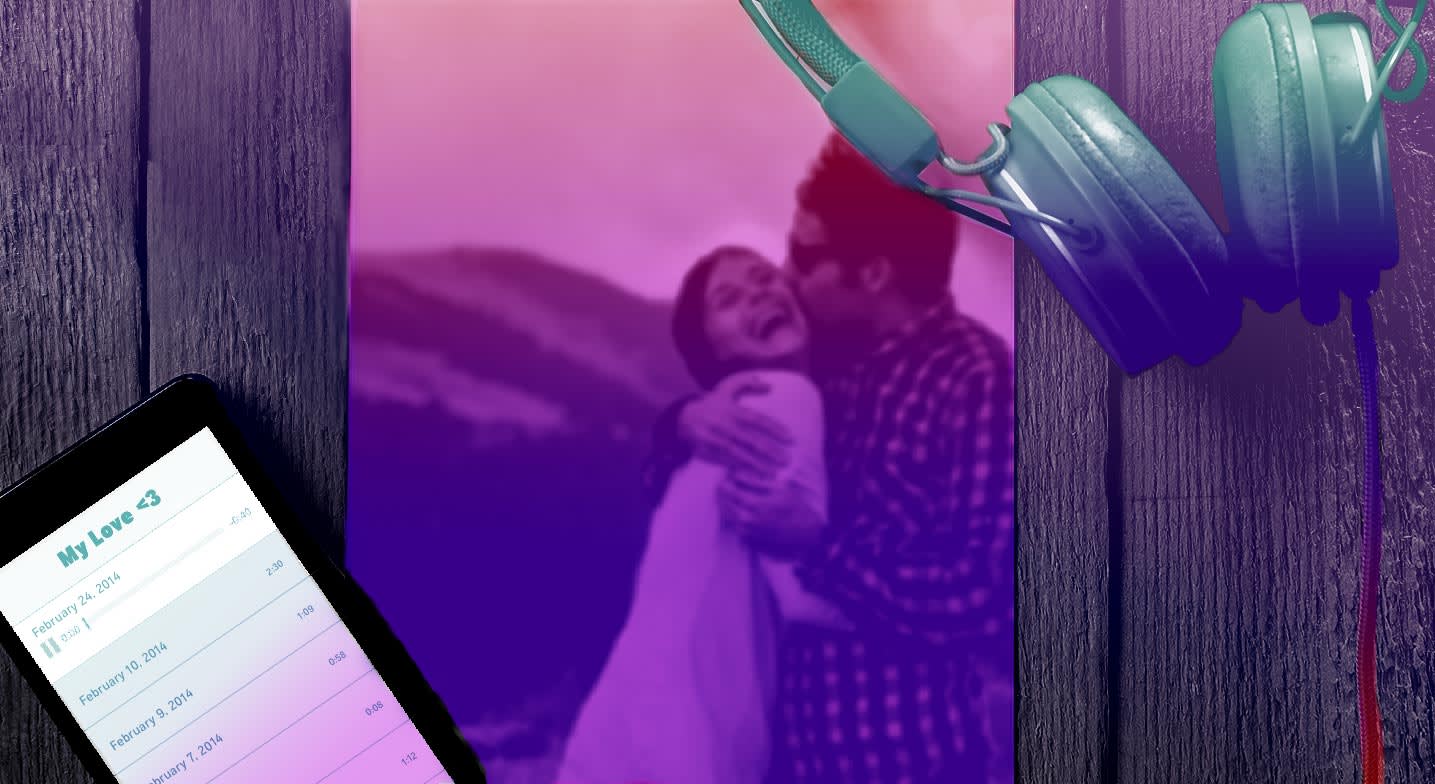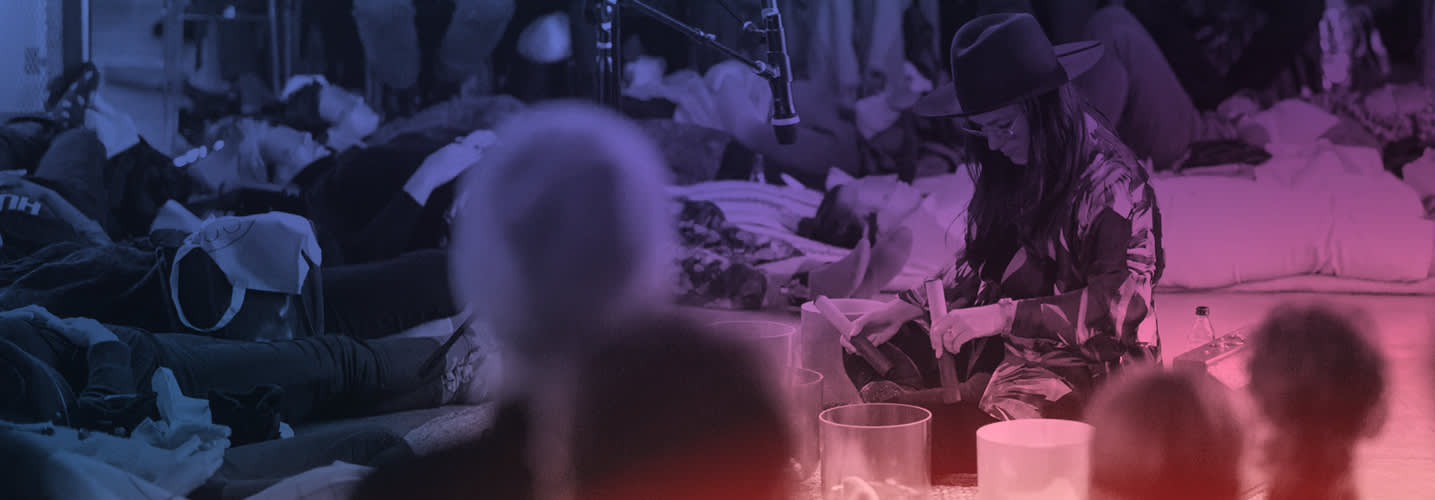It’s fairly uncommon to have a recording foreshadowing how you will die. But Harris Wittels was not your common guy. A respected up-and-coming comedian, writer, and actor, Wittels worked on shows like Parks and Recreation, The Sarah Silverman Show, and Master of None. As a result, he was no stranger to media interviews; in a 2014 appearance on Pete Holmes’s podcast You Made it Weird, Wittels and Holmes talked about how strange it is that death is a taboo topic and discussed Wittels’ heroin addiction. Just three months later, Wittels died of a heroin overdose.
After Wittels’ death, his sister Stephanie went back and listened to that interview as well as his other media appearances. “It was really hard for me to listen to them,” she says. “Even though in many of them he’s on drugs, he did a really good job of being himself.”
When a person passes, they leave behind many digital mementos, but none is more visceral than their own voice. For those that loved them, voice recordings can dredge up a complicated mix of emotions. Yet it’s one of the few ways that can make us feel like that person is still with us. There are countless stories in the media of people who have lost loved ones but left their loved ones’ phones activated just to hear their voicemail greetings.
For Stephanie, watching and listening to Harris’ media appearances and stand-up can be comforting but also “extremely frustrating and very, very painful.” She says, “He’s so funny and great in [the recordings], but it’s just such a shame when I listen to them. I almost don’t want to see or hear him doing anything where he’s being super talented because it’s just like, ‘God, you really fucked up.’”
Alaina (who requested we not include her last name) of Tampa, Fl., has saved voicemails from a friend who died of cancer. She revisits them every few months but only when she’s prepared to mourn. “It makes me feel like I have a living part of him left,” she says. But at the same time, it’s painful. “I feel a lot of guilt about our relationship and going through that stuff stirs it up,” she says. “It’s bittersweet, you know? You’re happy but also sad that’s all you get — there’s no more new memories you get to make.” Henry Davis of Eureka, Calif., echoes this sentiment. Davis’ father died of cirrhosis in early 2015, and Davis has saved the last four messages from him. “I listen to them about once a month or so,” says Davis. “It doesn’t feel good, but it makes me feel like he still exists in a tangible way.”
“It’s bittersweet, you know? You’re happy but also sad that’s all you get…”
With modern technology, it takes little effort to stumble across these digital reminders of loved ones. Others report technology prompting them to remember difficult memories, whether it’s Facebook’s On This Day feature reminding people about dead family members or advertisers sending baby formula to a woman who miscarried. Alaina calls these strange byproducts “interpersonal debris.” Now that most modes of communication are saved or logged somewhere, we must make a conscious effort to delete things we don’t want to keep. But other times, in the case of deceased loved ones, we want to make a point of saving them.
There are several phone apps devoted solely to helping people collect and store these precious reminders of their loved ones: VMSave grabs people’s voicemail greeting message and Soal lets people record and store messages. (Soal’s tagline is apt: “If seeing is believing, then hearing is remembering.”) Bridges says she paid $10 for CBW Productions to convert her voicemails into MP3 files she could keep on her computer. “I was terrified of them magically disappearing or getting wiped after a certain amount of time,” she says.
And that’s what happened to Stephanie Wittels — she lost a backlog of voicemails from her brother. “I was in such a fog for months after [his death] that I truly do not know what happened to those voicemail messages,” she says. “They were on my phone and then they weren’t.” I ask her whether she may have deleted them. “Possibly,” she replies. But her theory is that the outpouring of support from family and friends overloaded her mailbox, causing older messages to be deleted.
Before they disappeared, she was able to listen once. “He called me ‘Steph,’ but we would also say ‘sister’ or ‘brother’ — we’d say stuff like, ‘It’s brother,’ or ‘How are you doing? I’m calling to check in,’ or he’d say, ‘I’m feeling better.’ He checked into rehab at the beginning of January and was calling me from there — ‘love you,’ that kind of thing,” she says.
Some people are taking matters into their own hands and pre-emptively recording their own voice for their loved ones before they lose the chance to speak.
To a loved one, even the most mundane messages can mean the world. Just hearing a familiar voice is comforting. That’s why some people are taking matters into their own hands and pre-emptively recording their own voice for their loved ones before they lose the chance to speak. For Jim Hashman, his wife was a big part of why he spent days recording his own voice. Hashman has amyotrophic lateral sclerosis (ALS, or Lou Gehrig’s disease), a progressive neurodegenerative disease. About 75% of people diagnosed with ALS need assistance with communicating, so Hashman’s speech therapist told him about a common practice for people with ALS called message banking. The idea is for people to record themselves saying common, everyday phrases so that they can be used if a person develops difficulty speaking.

“I had a real emotional hurdle to overcome, as do most PALS (people with ALS),” he wrote in an email. “It was my wife who finally got me going when she told me that even if it was a simple, everyday phrase like, ‘I’m thirsty,’ she would rather hear my voice than a computer-generated voice.”
Hashman recorded most of his messages using the free software Audacity and put together a tutorial for other people with ALS on how they can do the same. In it, he includes a list of phrases he recommends recording: personalized messages (“Hi Mom,” or “I love you, Dad”), special occasions (“happy birthday”), comments (“thank you,” or “sounds good,”), requests and desires (“I’d like some wine,” or “I have a cramp in my leg,”), and even commands for your dog (“Sherlock, come”).
Hashman says the tool has served him well. “Now that I need [my message bank], I am SO GLAD I did it,” he writes. “Even I enjoy hearing my own voice, and others think it is great. Now I wish I had recorded more and am constantly encouraging other PALS to message bank.”
People with ALS also record themselves telling stories to serve as an external memory bank for family and friends.
In addition to message banking, people can also use their own voice to generate a synthesized voice. The process, called voice banking, requires people to record themselves saying specific sounds, words, or phrases. Those clips are then synthesized into a digital voice that is meant to sound like their own and that can be used to make requests or conversation when people are having difficulty using their own voice. Many programs require a staggering number of recordings — for instance, popular tool Model Talker collects around 1600 clips, making voice banking an effortful and time-consuming activity. Others can “crack” people’s voices with just a few samples and generate a synthesized voice with the help of a “voice donor,” but those tend to cost hundreds or even thousands of dollars.
Jackie Gaddis, the assistive technology coordinator at the ALS Association’s Evergreen Chapter, says that she’s heard mixed reviews from people with ALS about their digital voices. “Some people like it; others say it’s still their voice, but it’s too synthesized. Clients with ALS often don’t care for their voice,” she says. But the voice isn’t just for them. “It ends up being more important for their spouse to still hear it.”
Gaddis says that in addition to recording short clips or generating a synthesized voice, people with ALS also record themselves telling stories to serve as an external memory bank for family and friends. “They’ll record things they want their kids to hear — for instance, the story of how they were born,” she says.
It’s a practice that could benefit us all. We all will, of course, be gone someday. So why not be intentional about the memories we leave behind? After we’re gone, our loved ones will want something to remember us by — and what better means than our own voices.




